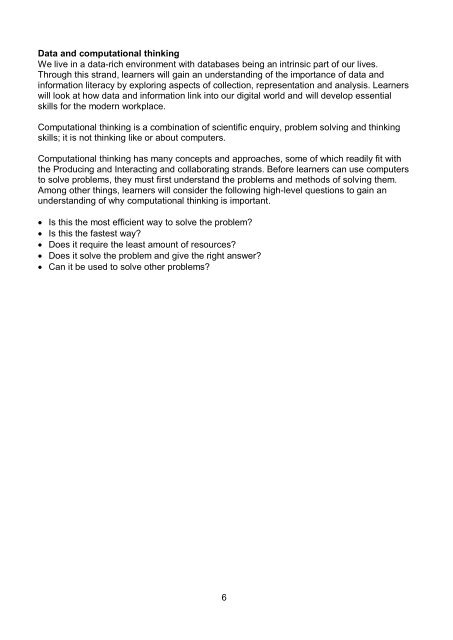Digital Competence Framework guidance
160831-dcf-guidance-en
160831-dcf-guidance-en
Create successful ePaper yourself
Turn your PDF publications into a flip-book with our unique Google optimized e-Paper software.
Data and computational thinking<br />
We live in a data-rich environment with databases being an intrinsic part of our lives.<br />
Through this strand, learners will gain an understanding of the importance of data and<br />
information literacy by exploring aspects of collection, representation and analysis. Learners<br />
will look at how data and information link into our digital world and will develop essential<br />
skills for the modern workplace.<br />
Computational thinking is a combination of scientific enquiry, problem solving and thinking<br />
skills; it is not thinking like or about computers.<br />
Computational thinking has many concepts and approaches, some of which readily fit with<br />
the Producing and Interacting and collaborating strands. Before learners can use computers<br />
to solve problems, they must first understand the problems and methods of solving them.<br />
Among other things, learners will consider the following high-level questions to gain an<br />
understanding of why computational thinking is important.<br />
Is this the most efficient way to solve the problem?<br />
Is this the fastest way?<br />
Does it require the least amount of resources?<br />
Does it solve the problem and give the right answer?<br />
Can it be used to solve other problems?<br />
6


